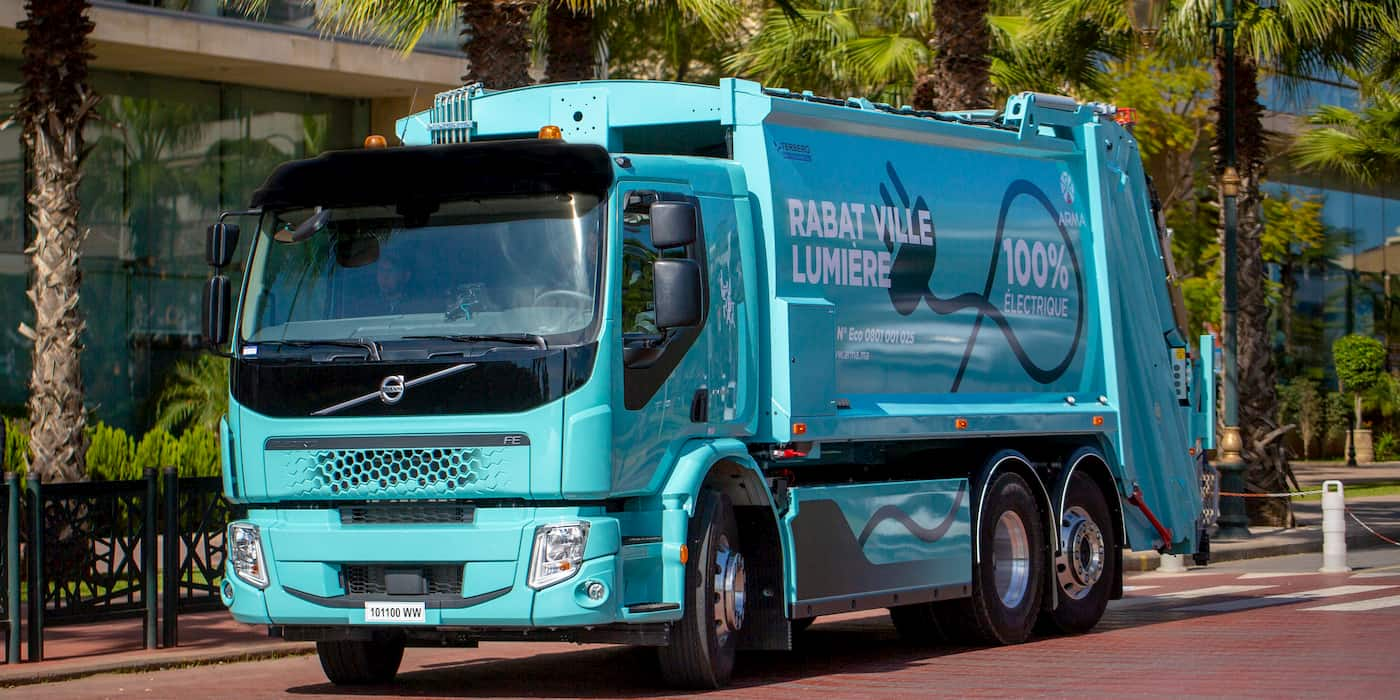Electric vehicles (EVs) have been making significant strides in various sectors, and the world of waste management is no exception. Electric garbage trucks, sometimes referred to as electric refuse trucks, are becoming a more sustainable and environmentally friendly option for waste collection. In this article, we will delve into the world of EV garbage trucks and what you should know about this innovative approach to garbage pickup.

The Environmental Benefits of EV Garbage Trucks
One of the primary reasons for the adoption of electric garbage trucks is their positive impact on the environment. These vehicles offer several environmental benefits:
- Reduced Emissions: Unlike traditional diesel-powered garbage trucks, electric versions produce zero tailpipe emissions. This means cleaner air for communities and a reduction in greenhouse gas emissions, contributing to efforts to combat climate change.
- Quieter Operation: Electric garbage trucks operate with significantly lower noise levels compared to their diesel counterparts. This reduction in noise pollution can lead to a quieter and more peaceful environment for residents, especially during early morning or late-night pickups.
- Lower Operating Costs: While electric garbage trucks may have higher upfront costs, they often result in lower operating and maintenance expenses. Electric vehicles have fewer moving parts, require less maintenance, and benefit from lower electricity costs compared to diesel fuel.
Electric garbage trucks not only help reduce air pollution but also contribute to quieter and more sustainable communities. These benefits align with the growing interest in sustainable transportation solutions.
How EV Garbage Trucks Work
Electric garbage trucks use advanced technology to collect and transport waste efficiently. Here’s how they work:
- Electric Powertrain: EV garbage trucks are equipped with electric powertrains, which consist of electric motors powered by rechargeable batteries. These motors drive the vehicle and operate the necessary hydraulics for waste collection.
- Battery Technology: The batteries used in electric garbage trucks are typically lithium-ion batteries, similar to those used in electric cars. These batteries store electrical energy and provide the power needed for the vehicle’s operation.
- Regenerative Braking: Electric garbage trucks often feature regenerative braking systems, which capture and store energy during braking and deceleration. This energy is then used to recharge the batteries, increasing overall efficiency.
- Quiet Operation: Electric garbage trucks are known for their quiet operation, making them suitable for urban areas where noise pollution is a concern. This quietness is particularly beneficial for early morning and late-night pickups.
The technology behind electric garbage trucks is continuously evolving, leading to increased efficiency and reliability. Advances in battery technology, in particular, have contributed to the growth of electric waste collection vehicles.
Charging Infrastructure for EV Garbage Trucks
To support the adoption of electric garbage trucks, municipalities, and waste management companies need to invest in charging infrastructure. Charging stations are typically installed at central depots where the trucks are parked and maintained. Key points about charging infrastructure include:
- Overnight Charging: Electric garbage trucks are often charged overnight when the demand for electricity is lower. This approach helps avoid strain on the electrical grid during peak hours.
- Fast Charging: Some charging stations are equipped with fast-charging capabilities, allowing garbage trucks to quickly recharge during breaks between shifts.
- Investment in Infrastructure: The transition to electric garbage trucks may require a significant investment in charging infrastructure. However, the long-term cost savings and environmental benefits often outweigh these initial expenses.
The development of a robust charging infrastructure is critical to ensuring the seamless operation of electric garbage trucks. Investments in charging technology continue to improve convenience and efficiency.
Challenges and Considerations
While electric garbage trucks offer numerous advantages, there are also challenges and considerations to keep in mind:
- Initial Costs: Electric garbage trucks can have higher upfront costs compared to their diesel counterparts. Municipalities and waste management companies need to consider their budgets and potential funding sources for these investments.
- Range and Battery Capacity: Garbage trucks have demanding duty cycles that require substantial power. Ensuring that electric garbage trucks have sufficient range and battery capacity to complete their routes is crucial.
- Charging Infrastructure: As mentioned earlier, the availability of charging infrastructure is vital. Adequate planning and investment are necessary to support a fleet of electric garbage trucks.
- Vehicle Weight: Electric garbage trucks can be heavier due to the weight of the batteries. This can impact road wear and tear, and municipalities may need to address this issue in their infrastructure planning.
Addressing these challenges requires a comprehensive approach that includes financial planning, technology upgrades, and infrastructure development. Municipalities that successfully navigate these considerations can reap the long-term benefits of electric garbage trucks.
The Future of Electric Garbage Trucks
The adoption of electric garbage trucks represents a positive step towards more sustainable and environmentally friendly waste management practices. As technology continues to advance, we can expect to see improvements in battery technology, range, and efficiency, making electric garbage trucks an even more attractive option.
Moreover, increased awareness of environmental concerns and the desire to reduce carbon footprints are likely to drive further adoption of electric vehicles in the waste management industry.
Conclusion
Electric garbage trucks are an exciting development in the world of waste management. They offer significant environmental benefits, reduced noise pollution, and long-term cost savings. As municipalities and waste management companies continue to explore sustainable practices, the adoption of electric garbage trucks is poised to grow, contributing to cleaner and more eco-friendly communities.
As technology and infrastructure continue to evolve, electric garbage trucks will become an increasingly viable and attractive option for garbage pickup operations. Those interested in electric vehicles should keep an eye on these innovative solutions as they shape the future of waste management.
Jennifer Bell is an eco-conscious person, an avid car enthusiast, and a writer for waste management companies in the Philadelphia area.
